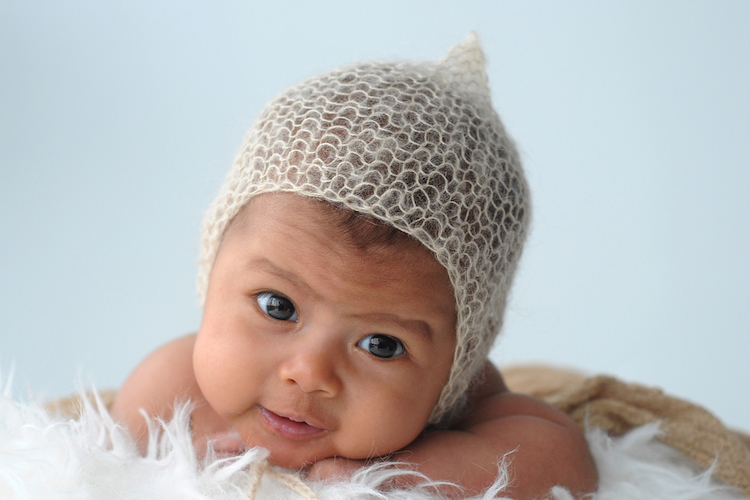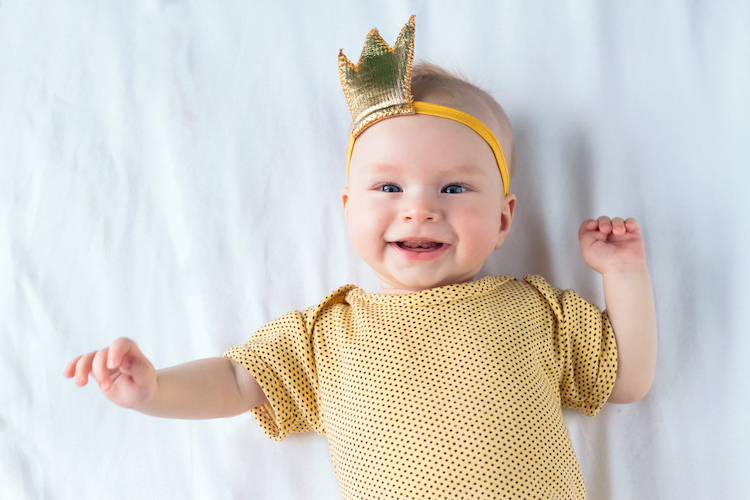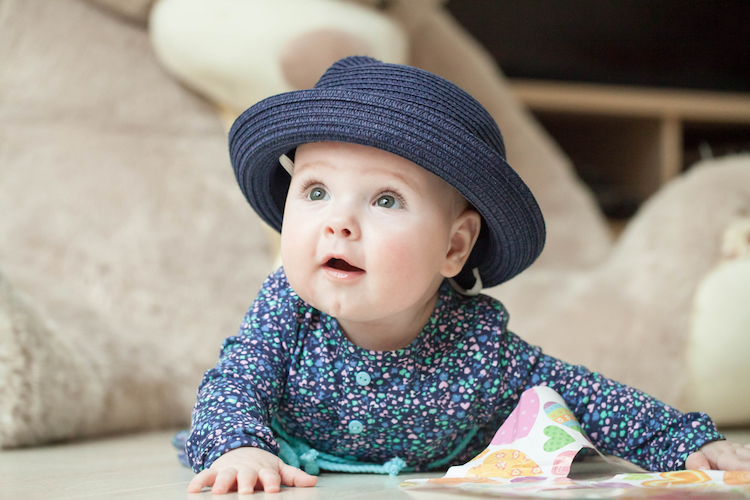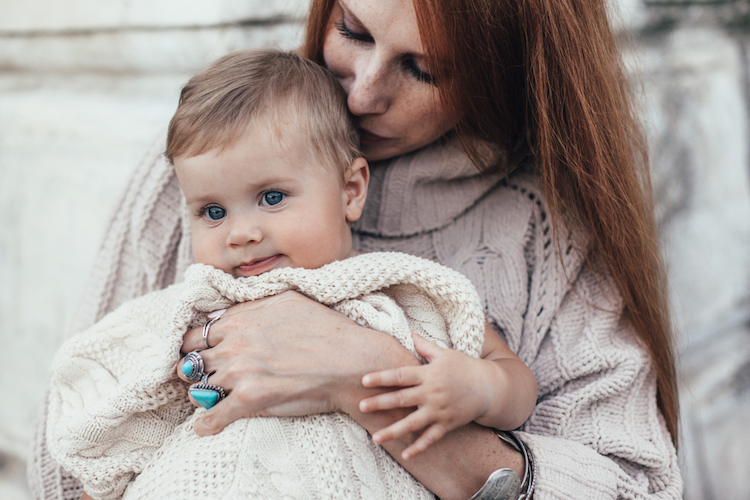Baltic mythology baby names are a celebration of the culture and history of Latvia, Estonia, and Lithuania. If you can trace your heritage back to any one of those countries, you might be interested in celebrating your family history with a Baltic baby name. Lithuanian and Latvian are closely related languages and both belong to the Baltic family. Estonian on the other hand is considered a Finnic language more closely related to Finnish than the other two.
We decided to round up some magical Baltic mythology baby names for girls and boys for you to impart a touch of magic along with your baby’s appellation. Below we will begin with names for girls and then turn to boys. Scroll through these storied names and hopefully, you will discover the perfect fit for your baby!
Baltic Mythology Baby Names for Girls
Audėja

Audėja is a handsome name that belongs to one of the seven sisters who made garments from human lives. She is considered a weaver goddess. This name feels accessible to American parents.
Aušrinė

Aušrinė (sometimes spelled Aušra) is an appellation that means “dawn.” Aušrinė is the personification of the Morning Star.
Auštaras

A cousin of the previous name, Auštaras is the Latvian form of Aurora and names the personification of dawn and light, a messenger for the sun.
Birutė

Birutė is a legendary wife of Kęstutis, the Grand Duke of Lithuania, who was considered to be the guardian of the sacred fire. Little is known about the priestess’ life but after her death, a strong cult developed among Lithuanians, especially in Samogitia.
Dalia

Dalia is a name that means “to share.” The meaning hints at the name’s mythological significance. Dalia is the Lithuanian goddess of fate. She is the giver and taker of goods and property. This is one of the Baltic mythology baby names that easily translates for American families.
Dēkla

Dēkla is a deity of fortune and destiny. She is one of the three sisters and deities of fate and a goddess in charge of children.
Eglė

Eglė names a legendary Lithuanian woman who married the Serpent Prince. Eglė the Queen of Serpents is one of the best-known Lithuanian fairy tales. The name translates to “spruce tree.” Eglė is one of the Baltic mythology baby names that might not translate for American parents. But, if you’re persistent, we think it’s doable.
Gabija

Gabija is the Lithuanian spirit of fire and the protector of the home and family. She appears in many forms including a cat, stork, rooster, or a woman in red. The name can be translated to “to cover” or “to protect.” Gabija was greatly respected and cared for like a living creature. People would feed Gabija by offering bread and salt.
Indraja

Indraja is potentially related to Indra, the ancient Hindu god of the sky and rain. She is considered a Lithuanian water nymph and a personification of the planet Jupiter.
Javinė

Javinė is the Lithuanian goddess of domestic life and the household, also a protector of barns. The name translates to “crop” or “grain.”
Jūratė

Jūratė translates to “sea.” She is the Lithuanian goddess of the Baltic sea, the queen of the sea from the legend of Jūratė and Kastytis. Jūratė lived under the waves of the Baltic Sea in a beautiful castle made of amber where she also presided over all marine creatures.
Kārta

Kārta is possibly translated as “a sheet of metal” or “a sheet.” She is one of the three sisters, deities of fate, a goddess in charge of adulthood. Kārta is one of the Baltic mythology baby names that we feel has a touch of mystery to it.
Laima

Laima is one of the three sisters and deities of fate. The goddess of luck, is associated with marriage, childbirth, and death. She determines the length of human life. She is also considered the patron of pregnant women. The name actually translates to “luck.”
Spīdola

Spīdola in the Latvian national epic Lāčplēsis Spīdola (The Bear Slayer) is the name of a witch enslaved by the devil but eventually rescued by the hero Koknesis, whom she marries. The poem is considered to be one of the most influential works of Latvian Culture.
RELATED: 25 Mythological Baby Names For Your Legendary Baby
Saulė

Saulė means “sun.” It is the modern Lithuanian and Latvian word for the sun. Saulė is a solar deity, the goddess of life, fertility, health, and warmth. She is the patron of the unfortunate and orphans in particular. This is one of the most attractive Baltic mythology baby names that we think would work well for English speakers.
Baltic Mythology Baby Names for Boys
Auseklis

Auseklis is the male form of Aušrinė, also meaning “dawn.” The deity is also a personification of the Morning Star.
Auštaras

Auštaras (also Austra) is the male form of one of the Baltic mythology baby names we shared for girls. The appellation also translates to “aurora.” Auštaras is the Latvian personification of the dawn and light, the messenger of the sun.
Dievas

Dievas (also spelled Dīvs) is a name that simply means “god.” It is the modern Lithuanian and Latvian word for a deity of any kind. The name is associated with the supreme god, the shining sky god, a non-active divine being.
Kastytis

Here is another one of the Baltic mythology baby names that might not translate easily for American parents. Kastytis names the fisherman in the legend of Jūratė and Kastytis. He fells in love with the sea goddess Jūratė.
Kirnis

Kirnis (also spelled Kirnus) is a Lithuanian god of cherries. Yes, cherries! How sweet is that? This is one of the Baltic mythology baby names that we feel is really handsome and translates well for a baby boy in the US.
Lāčplēsis

Lāčplēsis is a name that means “bear slayer.” The name belongs to the hero of Latvia’s national epic poem, Lāčplēsis Spīdola.
Mēness

Mēness (also found spelled Mėnulis and Mėnuo) is the personification of the moon. The name indeed means “moon.” In myth, Mēness is considered a war god who had a reputation for creating conflict. Believers would invoke the name in times of war.
Nosloum

Nosloum is one of the Baltic mythology baby names that has a lovely nature meaning in “oak tree.” This is an obscure Baltic god that little is known about but the name was recorded in Jesuit monk documents that list him as a deity.
Occopirmus

Occopirmus is the Prussian supreme deity and god of the sky. It’s clear that this is one of the Baltic mythology baby names that won’t easily translate for many American families.
Patollo

Patollo is the evil Prussian god of the underworld. Researchers have concluded that Patollo and Peckols (stick a pin in that name) were the same god who held dominion over the dead.
Perkūnas

Perkūnas (also spelled Pērkons or Perkūns) is the god of thunder, rain, mountains, oak trees, and the sky. This name translates to “oak” or “fir” or “wooded mountain.” If you’re after one of the nature-infused Baltic mythology baby names for boys, this could be the one.
Peckols

Peckols is one of many names, including Patollo for the evil Prussian god of the underworld and the dead. The name actually translates to “devil” so it might not be the warmest choice for your son.
Potrympus

Potrympus (also spelled Potrimpus and Autrimpo) is the Prussian god of agriculture and water. The name is a bit of a mouthful but not impossible.
Puschkayts

Closely related to the previous name, Puschkayts is the Prussian god of the earth. As much as we love earth, we’re not sure that this is one of the best Baltic mythology baby names for a baby boy in the US today.
YOU MIGHT ALSO LIKE: 100 Nature Names for Girls and Boys
Žilvinas

Žilvinas names a legendary Serpent Prince famed in the Lithuanian folk tale Eglė the Queen of Serpents. Žilvinas is not the easiest name on this list but it’s not impossible. Žilvinas is known as the “Grass Snake Prince.”
There you go! We hope you enjoyed these Baltic mythology baby names and that you’ll consider some of them for your baby. As you’ve seen Baltic mythology is so very special. If you would like to celebrate your heritage, these excellent, storied appellations could be the best choice for your family. Happy baby name hunting!
Mamas Uncut is THE online place for moms. We cover the latest about motherhood, parenting, and entertainment as well – all with a mom-focused twist. So if you're looking for parenting advice from real parents, we have plenty of it, all for moms from moms, and also experts. Because, at the end of the day, our mission is focused solely on empowering moms and moms-to-be with the knowledge and answers they’re looking for in one safe space.
